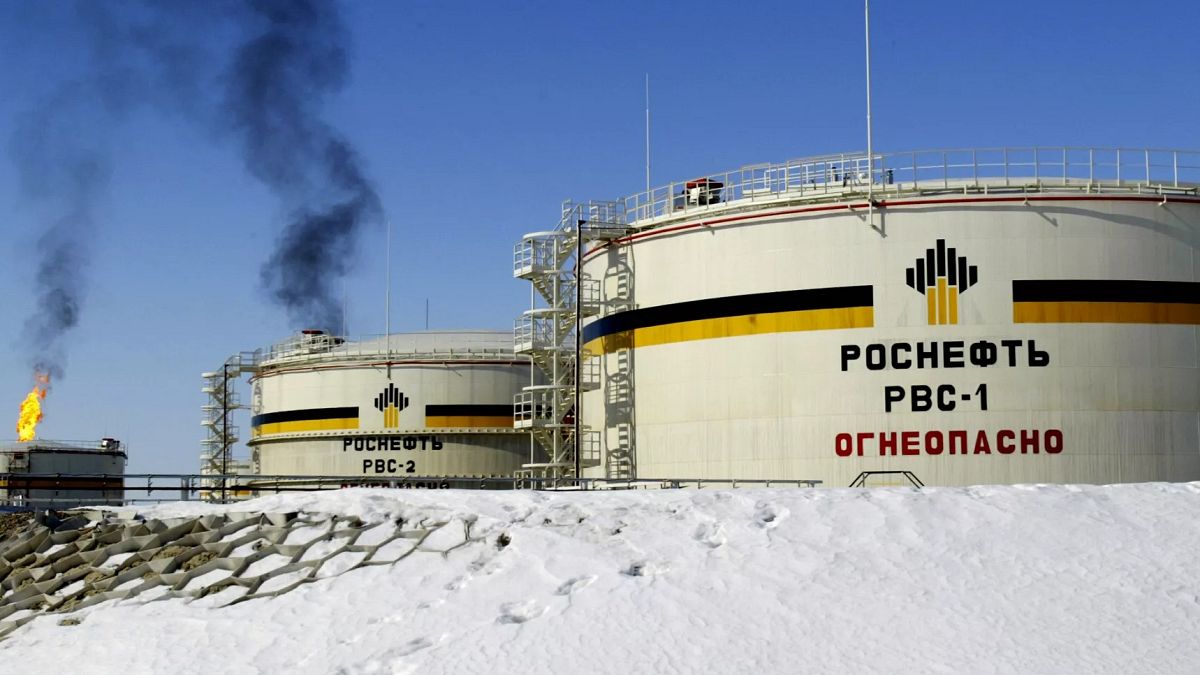Release date
•updated
Hungarian Prime Minister Viktor Orbán said he will discuss new US sanctions on Russian oil with President Trump in Washington next week.
Last week, the United States imposed sanctions on Russia’s two largest oil companies, Rosneft and Lukoil, and the former is also on the EU’s blacklist.
“Hungary is highly dependent on Russian oil and gas, so we are discussing how to create a sustainable system for our economy. Without these, energy prices would rise and there would be supply shortages,” Prime Minister Orbán told Italian newspaper La Repubblica during a visit to Rome.
Asked whether President Trump had gone too far and made a mistake in targeting Russia’s energy sector, Prime Minister Orbán said it had gone too far, adding that Hungary would find a “way out” from the sanctions.
The issue has become a point of tension for landlocked Hungary, which imports most of its fossil fuels from Russia despite repeated calls from the United States and the European Union to end its dependence on energy from Moscow.
Impact of US sanctions
Hungarian Foreign Minister Péter Szijjártó said his government was considering the possible impact of sanctions, and that the United States would keep them in place until Russian President Vladimir Putin showed a real desire to negotiate a ceasefire in Ukraine.
“As for the US sanctions, they have not yet come into force, so these measures have not yet caused any losses or difficulties with respect to energy imports from Russia,” Szijjártó said at a press conference in Budapest on Monday.
Separately, the European Commission said the US sanctions did not pose an immediate risk to the security of supplies to Europe, as member states are required to hold oil reserves for 90 days.
“Last week’s decision can clearly have an impact and we want to make sure that member states are prepared and have a plan. We are here to support them in this,” European Commission spokeswoman Anna Kaisa Itkonen told reporters.
Pressure increases on Slovakia and Hungary
Since Russia launched a full-scale invasion of Ukraine in 2022, the EU has made several attempts to reduce its energy dependence on Russia.
In 2022, the EU will ban the purchase of Russian pipeline oil, with Hungary and Slovakia receiving exemptions. However, while Russian pipeline gas is not banned, the EU plans to phase out all fuel imports within the region by the end of 2027.
In an interview with Fox News on Sunday, U.S. Ambassador to NATO Max Whitaker criticized Hungary for not doing enough to end the dependency.
Last week, the United States opted for sanctions on Russia’s energy sector for the first time since the start of the Ukraine war.
“Unlike many neighboring countries, Hungary has not made any plans and has not taken any active steps. We will work with neighboring countries like Croatia and other countries to help them de-escalate, and that pipeline will probably be shut down within a few years,” Whittaker said, referring to the Druzhba oil pipeline.
Slovakia would also have to present a plan to decouple from Russian energy, he added.
According to the Center for Democracy Studies, Hungary has further increased its energy dependence since the beginning of the full-scale invasion.
In 2022, 61% of Hungary’s crude oil needs will be imported from Russia. So far this year, that share has risen to 92%, but Slovakia is almost entirely dependent on Russia for oil imports.








